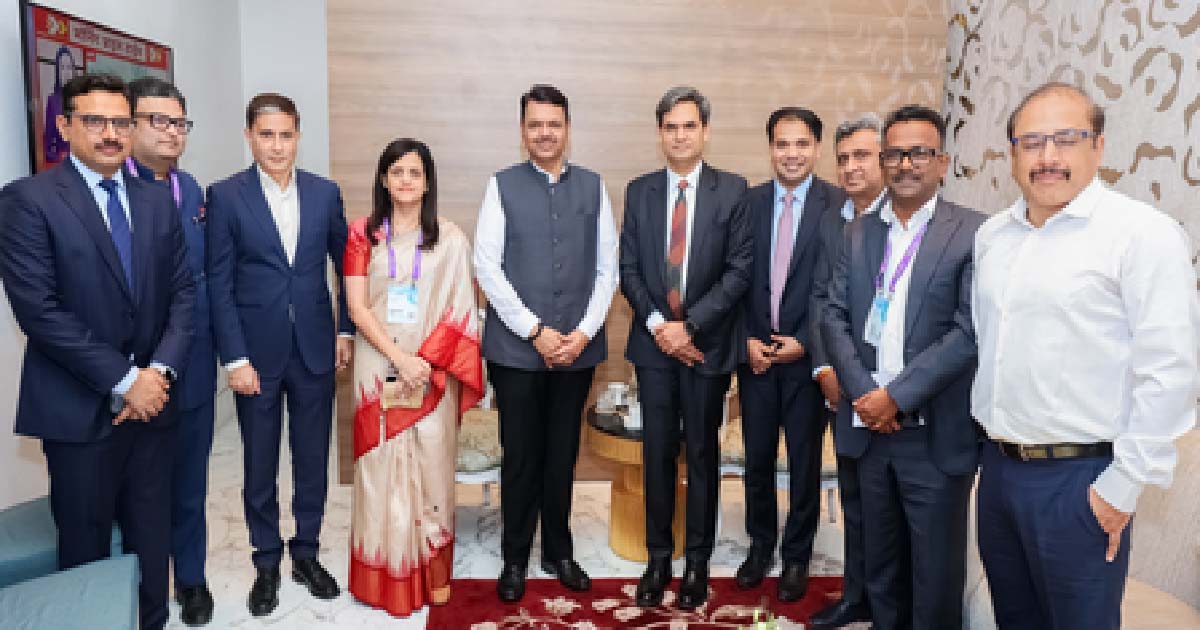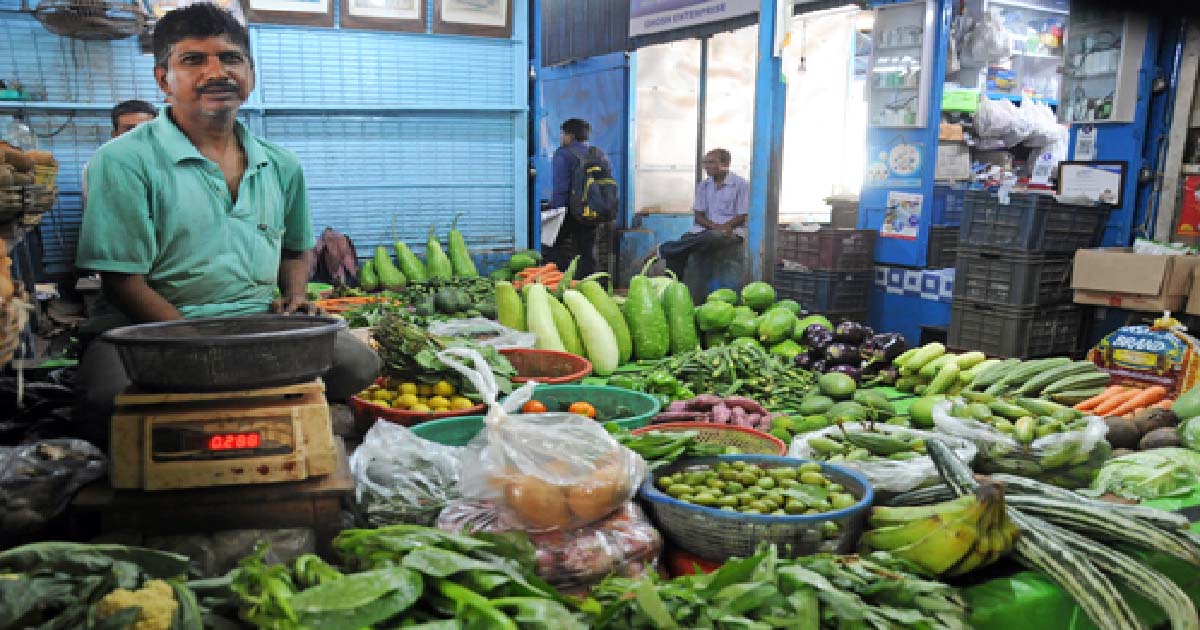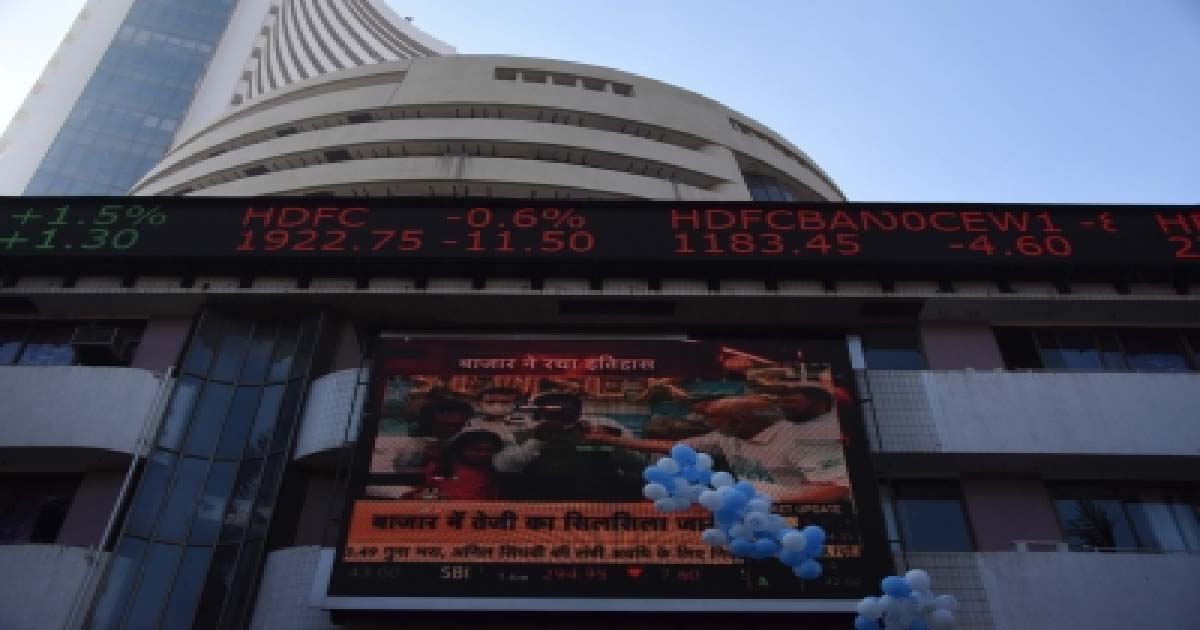Business
India’s growth story continues despite Covid; more people turning into ‘job creators’

Various waves of the Covid pandemic could not sweep off India’s growth story completely. Showing resilience India has registered 1.67 lakh companies in the financial year 2021-22 (April-March), according to a report by Ministry of Corporate Affairs (MCA).
The increase is significant considering that number of companies incorporated during Financial Year 2020-21 were the highest in any of the previous years.
The MCA had registered 1.55 lakh companies in 2020-2021. The incorporations during FY 2021-22 are 8 per cent more than the incorporations during FY 2020-21. While MCA had registered 1.24 lakh companies during FY 2018-19 and 1.22 lakh companies in 2019-20 respectively, it had registered 1.55 Lakh companies during FY 2020-21.
During FY 2021-22, the States having the highest number of registrations were Maharashtra (31,107 companies) followed by Uttar Pradesh (16,969 companies) Delhi (16,323 companies) Karnataka (13,403 companies) and Tamil Nadu (11,020 companies).
Sector wise, the maximum number of companies were incorporated in the Business Services (44,168 companies), followed by manufacturing (34,640 Companies) community, personal & social services (23,16 companies) and agriculture & allied activities (13,387 companies).
This also indicates that due to less availability of suitable jobs more and more people are opening their own businesses and are in turn becoming job creators.
The growth in GDP in India during 2021-22 is estimated at 8.9 per cent as against a contraction of 6.6 per cent in 2020-21. In value terms, GDP stood at Rs 38,22,159 crore in October-December 2021-22, higher than the Rs 36,22,220 crore in the corresponding period of the 2020-21.
Gross Value-Added (GVA) in the economy is expected to grow by 8.3 per cent in 2021-22 from a 4.8 per cent contraction in 2020-21, the National Statistical Office (NSO) said. Apart from the contact-intensive segment of trade, hotels, transport, communication & services related to broadcasting, all sectors are expected to surpass pre-pandemic GVA levels this year.
Even the MSMEs (Medium, Small, and Micro Enterprises) sector in India is set for an economic rebound, the latest ASSOCHAM-CRISIL joint study stated. It added that the sector is expected to achieve mid-teen growth in fiscal 2022 with the pick-up of economic activities.
Amidst the global pandemic, India has found its innate strength to brave the storm and focus on developing its domestic ecosystem, to support both the Indian and the global markets. The Aatmanirbhar Bharat vision that has been laid by the Hon’ble Prime Minister has enthused the Indian industry with confidence that will help us enhance our global play,” says MrDeepak Sood, Secretary General, ASSOCHAM.
Considered to be the engine of economies around the world, the MSME segment in India alone is estimated to have 6.3 crore units, which employs over 11.10 crore people. The sector accounts for 27 per cent of GDP and is crucial to the functioning of the economy, including in terms of employment generation, exports, and lending opportunities. The sector was the worst hit during the COVID-19 pandemic and the lockdown that followed in 2020.
Crediting MSMEs for putting the country on the firm path of economic recovery in 2022 after having had it tough in 2021, Bhushan Parekh, Director, CRISIL SME Solution, elaborated in the report, “A raft of measures by the government under its Aatmanirbhar Bharat banner has provided reprieve to MSME segment in recent months. These include Rs 20,000 crore subordinate debt for stressed MSMEs, Rs 50,000 crore equity infusion through MSME Fund of Funds (SRI Fund), 3-lakh crore Emergency Credit Line Guarantee Scheme (ECLGS) for businesses, including MSMEs (which was subsequently increased to Rs 5-lakh crore in Union Budget 2022-23), change in definition of what constitutes an MSME, and no global tenders for government procurement up to Rs 200 crore.”
The report also notes that if MSME lending by banking and non-banking finance companies (NBFCs) in fiscal 2021 rose to 7 per cent on-year, then the credit is expected to grow by 7-9 per cent (around Rs 18-lakh crore) on-year in fiscal 2022 supported by favourable government measures as well as rise in demand.
While the banks continue to dominate around 80 per cent of the MSME-lending book, it is, however, expected to reverse in the future. One of the factors driving the change is the digitalization of the MSME sector. The digital footprint of MSMEs expanded in 2021, according to the CRISIL survey of over 500 MSMEs. This has not only helped in providing enhanced customer experience, operational efficiency and workforce enhancement, but also facilitates access to financial services.
MSME also has 50 per cent share in exports since the past five years. The report states that exports-linked MSME sectors have been on the path to recovery and will continue to do so in the next fiscal.
Business
Maharashtra on path to becoming GCC hub: CM Fadnavis

Nagpur, Dec 12: Chief Minister Devendra Fadnavis on Friday announced that a crucial milestone has been achieved in the journey to establish Maharashtra as a GCC (Global Capability Centre) Hub.
He said that the Brookfield company is set to build Asia’s largest Global Capability Centre (GCC) in Mumbai, spanning approximately 2 million square feet.
The Chief Minister said that this project is expected to generate a total of 45,000 jobs, including 15,000 direct and 30,000 indirect jobs.
He stated that due to the state’s talent pool, infrastructure, and industry-friendly environment, Maharashtra is becoming a preferred destination for Global Capability Centres.
“The new GCC policy will lead to large-scale skill-based job creation and economic growth,” he added.
He also mentioned that FedEx, a global leader in the logistics sector, is keen to invest in its GCC and other operations near the Mumbai-Navi Mumbai airport area, said the government release.
The Chief Minister informed that he requested Microsoft to consider Maharashtra for their investments, noting that their largest existing investment is already in the state.
He expressed confidence that Microsoft will make a major investment in the future and take the lead in making Maharashtra an Artificial Intelligence (AI) centre.
The Chief Minister said that Maharashtra’s model for crime control with the help of Artificial Intelligence is a guiding light for the entire country.
Chief Minister Fadnavis confirmed that Microsoft has assured priority to Maharashtra in their largest ever investment in India, amounting to $17 billion.
He further highlighted the ‘Marble’ platform developed by Maharashtra, which helps detect cyber and financial crimes in just 24 hours instead of 3-4 months.
He said that this has resulted in saving people’s money and has expedited the process of tracking criminals.
Business
India’s CPI inflation estimated at 0.71 pc for Nov, food inflation stays in negative zone

New Delhi, Dec 12: India’s year-on-year inflation rate, based on the Consumer Price Index (CPI), was estimated at 0.71 per cent for November this year which was marginally higher than the 0.25 per cent in October, according to figures released by the Ministry of Statistics on Friday.
Food inflation stayed in the negative zone during November at (-) 3.91 per cent as prices of food goods fell compared to the same month of the previous year. Food inflation has now stayed negative for the sixth month in a row, easing the burden on household budgets.
However, the increase in headline inflation during November 2025 is mainly attributed to an increase in the inflation of vegetables, eggs, meat and fish, spices, and fuels compared to October, according to an official statement.
The retail inflation had eased further in October, after having plummeted to an over 8-year low of 1.54 per cent in September, as prices of food items and goods across sectors fell during the month.
The declining trend in food prices continued in October as food inflation fell deeper in the negative zone at (-) 5.02 per cent from (-) 2.28 per cent in September.
However, the overall outlook for inflation remains benign.
The RBI’s monetary policy committee (MPC) last week slashed its forecast for India’s inflation rate for the financial year 2025-26 to 2 per cent from 2.6 per cent predicted in October due to the sharp decline in food prices and the GST rate cuts playing out.
RBI Governor Sanjay Malhotra announced a reduction in the repo rate by 25 basis points to 5.25 per cent from 5.5 per cent earlier, as inflation had come down and the monetary policy could focus on boosting growth.
Malhotra said that the surge in economic growth to 8.2 per cent in the second quarter of the current financial year and the sharp decline in inflation to 1.7 per cent had provided a rare “Goldilocks period” for the Indian economy.
“The MPC noted that headline inflation has eased significantly and is likely to be softer than the earlier projections, primarily on account of the exceptionally benign food prices. Reflecting these favourable conditions, the projections for average headline inflation in 2025-26 and Q1:2026-27 have been further revised downwards.”
Malhotra also pointed out that core inflation (which excludes food and fuel) remained largely contained in September-October, despite continued price pressures exerted by precious metals. Excluding gold, core inflation moderated to 2.6 per cent in October. Overall, the decline in inflation has become more generalised, he added.
The RBI Governor observed that food supply prospects have improved on the back of higher kharif production, healthy rabi sowing, adequate reservoir levels and conducive soil moisture. Barring some metals, international commodity prices are likely to moderate going forward.
Business
Sensex, Nifty extend gains as metal stocks rally

Mumbai, Dec 12: Indian stock markets gained for the second straight session on Friday, supported by a strong global rally and heavy buying in metal stocks.
Sentiment also improved after Prime Minister Narendra Modi spoke with US President Donald Trump on Thursday to discuss strengthening economic ties, as both countries continue working toward a trade agreement.
At the closing bell, the Sensex had risen 449.53 points, or 0.53 per cent, to 85,267.66.
The Nifty also moved higher, adding 148.40 points, or 0.57 per cent, to trade at 26,046.95.
“In the near term, the trend is likely to remain constructive as long as the index holds above 25,900, which is expected to serve as a key support level,” experts said.
“On the higher side, the index may move towards 26,300 in the short term,” they added.
Several major stocks led the gains on the Nifty, including Tata Steel, Eternal, UltraTech Cement, L&T, Maruti Suzuki, Bharti Airtel, Adani Ports, Axis Bank and Bajaj Finance.
However, some stocks came under pressure due to profit booking. HUL, Sun Pharma, Asian Paints, ITC, Power Grid and HCL Tech were among the top losers.
In the broader markets, the Nifty MidCap index rose 1.18 per cent, while the Nifty SmallCap index advanced 0.94 per cent.
Sector-wise, the Nifty Metal index led the rally with a jump of 2.63 per cent, followed by realty, consumer durables and oil and gas. The FMCG and media sectors slipped into the red.
Meanwhile, silver prices in India continued their sharp upward trend. Silver futures crossed the historic Rs 2 lakh per kg mark for the first time on Friday, extending a rally that has pushed the metal up nearly 130 per cent so far this year.
Experts said that the combined boost from global cues, strong sectoral performance and improving geopolitical engagement helped the markets end the week on a positive note.
-

 Crime3 years ago
Crime3 years agoClass 10 student jumps to death in Jaipur
-

 Maharashtra1 year ago
Maharashtra1 year agoMumbai Local Train Update: Central Railway’s New Timetable Comes Into Effect; Check Full List Of Revised Timings & Stations
-

 Maharashtra1 year ago
Maharashtra1 year agoMumbai To Go Toll-Free Tonight! Maharashtra Govt Announces Complete Toll Waiver For Light Motor Vehicles At All 5 Entry Points Of City
-

 Maharashtra1 year ago
Maharashtra1 year agoFalse photo of Imtiaz Jaleel’s rally, exposing the fooling conspiracy
-

 National News1 year ago
National News1 year agoMinistry of Railways rolls out Special Drive 4.0 with focus on digitisation, cleanliness, inclusiveness and grievance redressal
-

 Maharashtra1 year ago
Maharashtra1 year agoMaharashtra Elections 2024: Mumbai Metro & BEST Services Extended Till Midnight On Voting Day
-

 National News1 year ago
National News1 year agoJ&K: 4 Jawans Killed, 28 Injured After Bus Carrying BSF Personnel For Poll Duty Falls Into Gorge In Budgam; Terrifying Visuals Surface
-

 Crime1 year ago
Crime1 year agoBaba Siddique Murder: Mumbai Police Unable To Get Lawrence Bishnoi Custody Due To Home Ministry Order, Says Report












